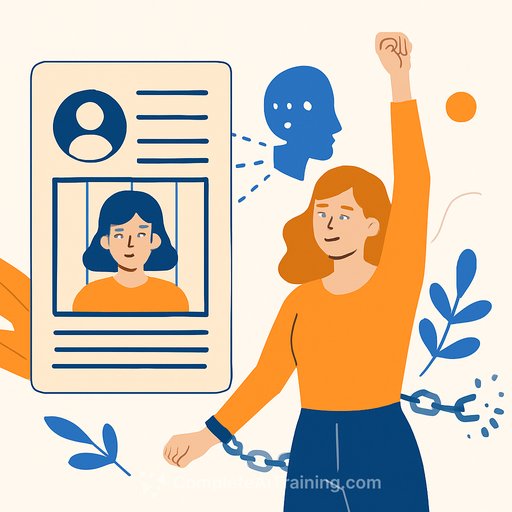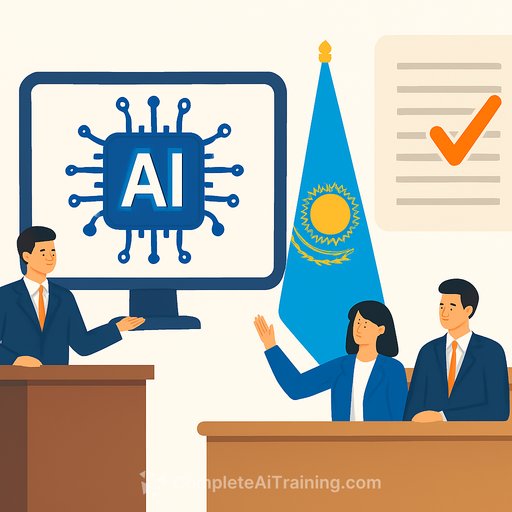After a Complicated Legal Past, AI Set Her Free
Heather Chase’s early adulthood was marked by addiction and crime, leading to multiple arrests and jail time. After getting sober in 2004 through a court-ordered recovery program, she rebuilt her life, earning college degrees and eventually becoming executive director of the nonprofit recovery center she once attended.
Challenges of a Lingering Criminal Record
Despite her last offense being in 2002, Chase’s criminal record shadowed her for over 20 years. It affected her housing options and even limited her professional responsibilities at the Haven. The record was a barrier to progress, costing her both money and opportunities.
Accelerating Expungement with AI
In 2023, Chase used an online tool from Rasa Legal, a company that leverages generative AI and automation to speed up the expungement process. Expungement clears eligible criminal records, but the traditional process is slow, complex, and expensive.
Rasa Legal automates about 90% of the work that doesn’t require legal judgment, drastically reducing time and cost. Instead of traveling to various jurisdictions to obtain records, clients use Rasa’s platform to quickly find out what's on their record and whether they qualify for expungement.
The Burden of Paper Trails
The U.S. judicial system organizes records by case, not by individual. This makes it difficult for people to track all their cases across multiple counties. Chase’s attempt to clear her record herself would have involved traveling long distances and reliving painful memories.
Rasa has agreements with courts in Utah and Arizona to centralize criminal records. For $15 (or $5 with some demographic info), users get a full report within minutes. If eligible, they can pay a flat fee of $250 for legal help to file expungement petitions—much cheaper than hiring traditional lawyers who charge thousands.
How AI Cuts Costs
Rasa uses generative AI to draft the petition for expungement, a personal statement explaining the client’s reasons for clearing their record. Clients answer a questionnaire, and the AI generates a first draft, which is then reviewed and refined by a lawyer.
This approach saves time and requires only three lawyers on Rasa’s team to handle thousands of cases. Since launching in September 2022, 22,000 people have used Rasa’s tools with 5,000 successful expungements. Previously, free legal clinics could only assist about 400 people per year.
Legal Changes Increase Demand
More states are expanding legal relief options. Over 30 states have downgraded charges for nonviolent property or drug crimes, making more people eligible for expungement. California’s Proposition 64, which legalized recreational marijuana in 2017, also allowed for clearing related convictions.
Still, the Process Is Too Slow
Despite eligibility, fewer than 10% of qualified individuals complete expungement. That leaves millions stuck with records that limit their lives—a phenomenon called the "second chance" gap.
Law professors and legal experts see AI as a tool to help close this gap. For example, chatbot prototypes based on large language models have been tested to assist users in identifying eligibility and navigating the process in multiple languages.
Life After Expungement
Clearing a record offers more than freedom from stigma—it improves practical aspects like job applications and housing. After expungement, individuals usually don’t have to disclose their criminal history, and background check companies must remove those records under the Fair Credit Reporting Act.
Balancing AI with Human Oversight
Rasa’s approach combines AI efficiency with lawyer review to ensure accuracy and integrity. The company uses its own AI model to protect client privacy and avoids relying solely on third-party AI outputs.
However, technology is only part of the solution. Structural issues in the legal system remain significant barriers. Automation can reduce friction but does not address the root causes that prevent many from accessing relief.
Conclusion
Tools like those from Rasa Legal demonstrate how AI can make expungement more accessible and affordable, helping people like Heather Chase move past their records. For legal professionals, this signals a shift toward leveraging technology responsibly to improve access to justice.
For legal practitioners interested in how AI can assist in automating routine tasks while maintaining ethical standards, exploring AI training resources could be valuable. Check out automation-focused AI courses to learn more about integrating these tools into legal workflows.
Your membership also unlocks:





